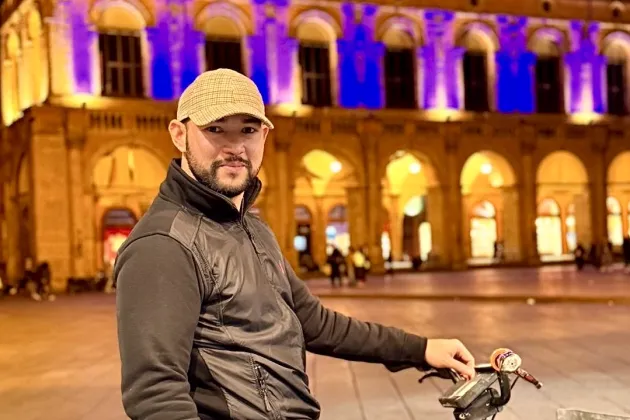First one year in the 1990s and then at a number of longer stays for education and work. Soon a smaller moving load will go to Romania again. Möllergren has received 15,000 SEK in travel grants from SWEAH and will visit the Department of Social Work, Journalism, PR and Sociology at Lucian Blaga University of Sibiu.
– I like the city in many ways. Sibiu is an amazing medieval town with a strong German heritage, with a renowned university and a strong scholarly tradition stretching centuries back, quite similar to Lund, says Glenn Möllergren.
But there are also fascinating differences.
– Our society in Sweden seems very organized and predictable to me, but Romania presents a contrast to that, with a more spontaneous and unexpected everyday life.
Among other things he will examine how older adults in Romania manage their everyday life often lacking home care services of the Swedish model.
– In smaller communities, they may have only one single social worker, usually a woman. Older adults rely on their families to help them, but many young people move far away and can’t always help, says Glenn Möllergren.
His theory is that older adults find ways to manage their everyday lives when they cannot get help from others.
– Also here in Sweden we see that older persons try to tinker and find solutions when they don't get the help they need from home care. Now, my aim is to understand more of what competencies older adults in similar life situations develop in a weaker welfare environment.
He thinks the home care system in Sweden tends to work in a rigid, automatized way, relying on the same procedure every day without considering whether the older adult is having a good or bad day. The care user may receive help for getting dressed regardless of whether they could do it themself or not.
– It is of course beneficial to do as much as possible yourself. With our system I fear a risk of care damage, which likely does not really exist in countries like Romania. There, you probably bite the bullet and do it yourself. It is also not an ideal society, but it will be interesting to reflect on the risks and opportunities, based on interviews and observations with home care users living in that context, continues Glenn Möllergren.
He would like to open up for the possibility of making the Swedish home care system more flexible for the older adult, and does not think it would necessarily be more expensive. More about that will be discussed based on his upcoming research.
Möllergren travels all the way to Romania by car, so that he can get out to the small villages. Because in remote places, there is usually no public transport (nor shuttle service for older adults).
The grant is not enough for a three months hotel stay, so now he is looking for guest accommodation through the university and his private network.





